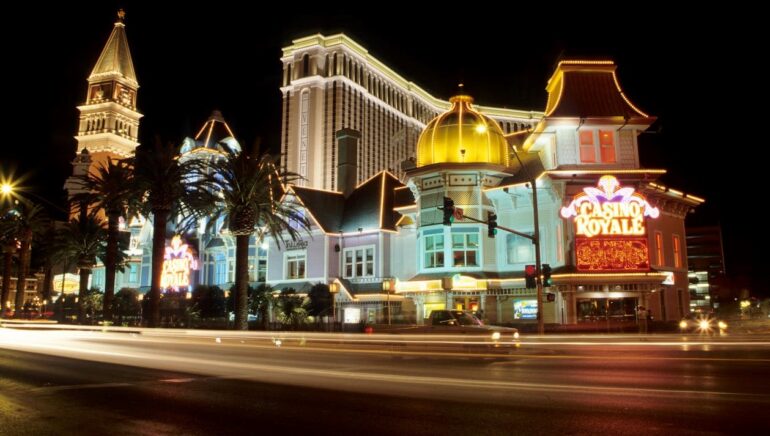The American film and gambling industries arose during the 20th century to become hugely profitable entertainment markets. It makes sense, then, why the two have closely been intertwined. Over the years, several major film studios have invested in the casino industry, with the latter providing sustainable revenues to finance Hollywood productions. In this guide, we’ve explored the historical relationship between both sectors.
Similarities Between Gambling and Film Entertainment
On the surface, the film and gambling industries may seem wildly different, but in fact, many similarities explain their close relationship. Both work in the realm of transportive entertainment, are at the forefront of technological innovation, and are always evolving to offer something fresh to audiences.
This includes adapting to the online entertainment market, with streaming now essential to online casinos and film services models. This allows them to offer products that are only possible through digital distribution. For example, unlike land-based casinos, players of the online Spin till You Win Betfair roulette game can enjoy random payout multipliers that offer a variety of potential wins.
In the film sector, companies like Netflix have experimented with the digital entertainment form, whether through the choose-your-own-adventure Bandersnatch episode of Black Mirror, or its data-driven approach to greenlighting films. The company has even recently branched out to capitalize on brand licensing.
Licensed Slot Machines
This year, Netflix entered its first gambling licensing deal to produce a slot adaptation of Squid Game. This has become a reliable money-maker for film studios, with everything from Game of Thrones to This is Spinal Tap being adapted into online slots. These deals either operate through revenue-sharing arrangements or licensing deals.
As a part of these deals, slot developers often integrate cut scenes from the adapted material, the same scores and sound effects, and characters or props in the place of symbols. The use of this content helps to drive fans of the IP to the games, which further benefits film production companies by raising funds.
Brand Placement
Another way that casino companies have helped to finance films is by offering their locations to major Hollywood productions to act as primary sets. For example, Ocean’s Eleven was filmed at the Bellagio Casino in Las Vegas, while a majority of The Hangover was shot on location at the Caesars Palace.
Understanding the potential of blockbuster films to boost tourism to their venues, these casino operators may reduce fees to shoot on their premises or even co-finance the film to capitalize off the exposure. Both the aforementioned venues reported considerable spikes in interest after the films were released, proving the power of considered brand placement.
A Symbiotic Relationship

Whether it’s through funds raised from licensing deals or product placement, the film industry has thrived and survived with assistance from the gambling sector. Recent years have seen casino moguls invest in film productions, helping them to diversify their portfolios with assets that mutually benefit one another. As the two industries become more intertwined, we can expect the film industry to endure through the toughest times.






